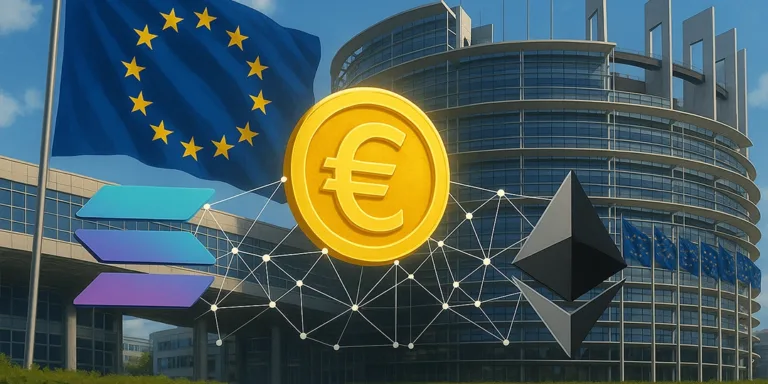In the backdrop of many countries exploring the possibilities of having a digital version of their native currency, the European Union (EU) has reportedly jumped on the bandwagon in figuring out how to launch its digital Euro. Unlike many other countries, which attempted to launch the digital version of the currency on private blockchains, the European Central Bank (ECB) is checking out the possibilities on public blockchains like Ethereum and Solana, as public blockchains are much secure.
What’s the difference between private and public blockchain?
Only selected participants can access the private blockchain, while a public blockchain is accessible by anyone. Public blockchains are fully decentralised with no single authority; decisions come from the network of participants. Private blockchains are centrally managed; administrators set rules, permissions and can alter the ledger as needed. Since public blockchains are decentralized, they are secure, while private blockchains are centralized.
Why is the ECB carrying out experiments to launch a digital euro?
Piero Cipollone, Member of the Executive Board of the ECB, making his statement at the Committee on Economic and Monetary Affairs of the European Parliament, said that many EU nations were relying on international card schemes or mobile solutions for in-shop payments and cross-border payments within the euro area, despite the availability of national card schemes. As such, “excessively relying on foreign providers undermines our resilience and compromises our monetary sovereignty.”
Furthermore, the dependence on foreign payment providers “weakens our economic potential and our ability to compete,” he stated. With the U.S. passing the GENIUS Act pushing stablecoins, Cipollone fears that the US dollar-backed stablecoins which businesses in Europe are already open to “could potentially result not just in further losses of fees and data, but also in euro deposits being moved to the United States and in a further strengthening of the role of the dollar in cross-border payments.” To prevent such things from happening, the official suggested digitalizing the Euro.
“It would ensure that the euro area retains control over its financial future. By offering a secure and universally accepted digital payment option which would be suitable for all use cases – and, crucially, under European governance – it would reduce our dependence on foreign providers,” said Cipollone.













